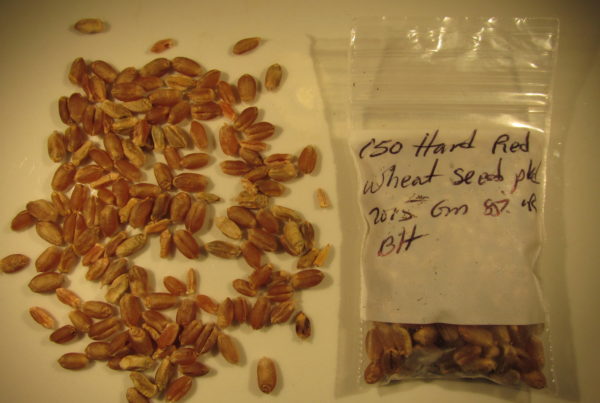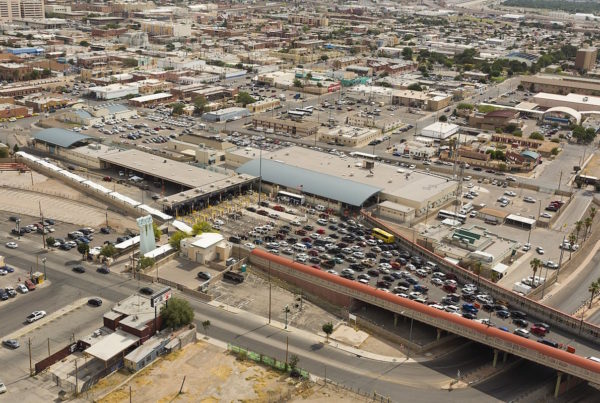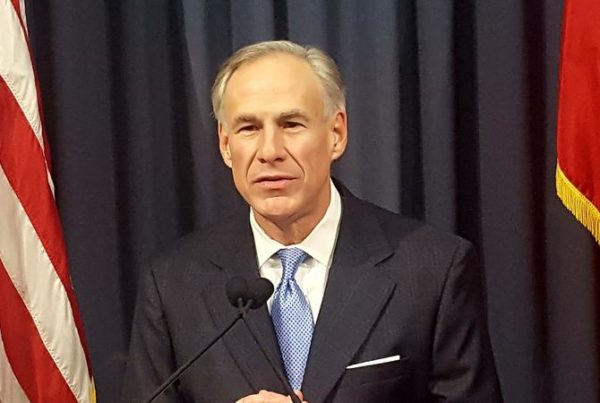President Donald Trump announced in a tweet Thursday that he will add a 5% tariff on all Mexican imports starting June 10, if Mexico doesn’t find a way to stop Central American migrants from coming to the U.S. border. He wrote that the tariff could go up incrementally each month until “the Illegal Immigration problem is remedied,” possibly reaching 25% by October. Mexico’s president, Andrés Manuel López Obrador, responded to Trump’s threat in a public letter, saying, “social problems are not solved with duties or coercive measures.”
While the tariff would hurt Mexico’s economy, it would also have major effects on Texas’ economy, as well as elsewhere in the U.S.
Raymond Robertson is director of the Mosbacher Institute for Trade, Economics, and Public Policy at Texas A&M University, and says the tariff would reduce trade, which would be detrimental for Texas.
“Texas relies on a lot of goods from Mexico,” Robertson says. “Not just as consumer goods, like avocados or things we would consume, but also, we import a lot of inputs that go into our own production. So raising these tariffs across all goods might end up costing American jobs.”
While Trump said the tariff would increase monthly, Robertson says it’s unclear whether he has the authority to do so. What’s more, he says it’s not clear whether the tariffs would even solve the immigration problem since a large majority of the migrants are from Central America, not Mexico.
“It’s not really clear that it’s Mexico’s problem. These are not Mexicans coming into the country, so it’s not clear why we are trying to impose these tariffs on Mexico,” Robertson says.
Robertson says the business community will likely continue to push back against the tariffs. Plus, financial markets in the U.S. and elsewhere are responding negatively to the tariff announcement.
“Right away, we’ve already seen the economic implications,” he says.
At the same time, the revised North American Free Trade Agreement, now known as the United States-Mexico-Canada Agreement that Trump recently negotiated with those countries, is awaiting approval by Congress. Robertson says the tariffs may actually push members of Congress to support the agreement in order to preserve the important trade relationships between those countries.
When it comes to potential loss of jobs in Texas, Robertson says it could be most severe in the auto industry, in steel and also in retail businesses like grocery stores.
“You look at stores, retailers like H-E-B that has a significant presence in Mexico – [it] might also be affected by some of the barriers that are increasing between the two countries,” Robertson says.
He says Texas and Mexico are “very integrated” in terms of trade, financial investment and legal migration.
“[That] benefits both economies, and so putting up these kinds of barriers threatens jobs, obviously, in Mexico, but also in the United States,” Robertson says.
He says theoretically, the U.S. could go elsewhere for imported goods, but that would pose different problems. If it sought certain goods from China instead, for example, that would add to the complicated, competitive nature of the U.S.-China economic relationship. By contrast, Mexico uses revenue from the goods it sells to the U.S. to buy American products. “Other countries don’t do that,” he says.
“If there’s any country in the world with whom we would like to promote their economy, it would be Mexico’s because they buy so much from us,” Robertson says.
Written by Caroline Covington.
















